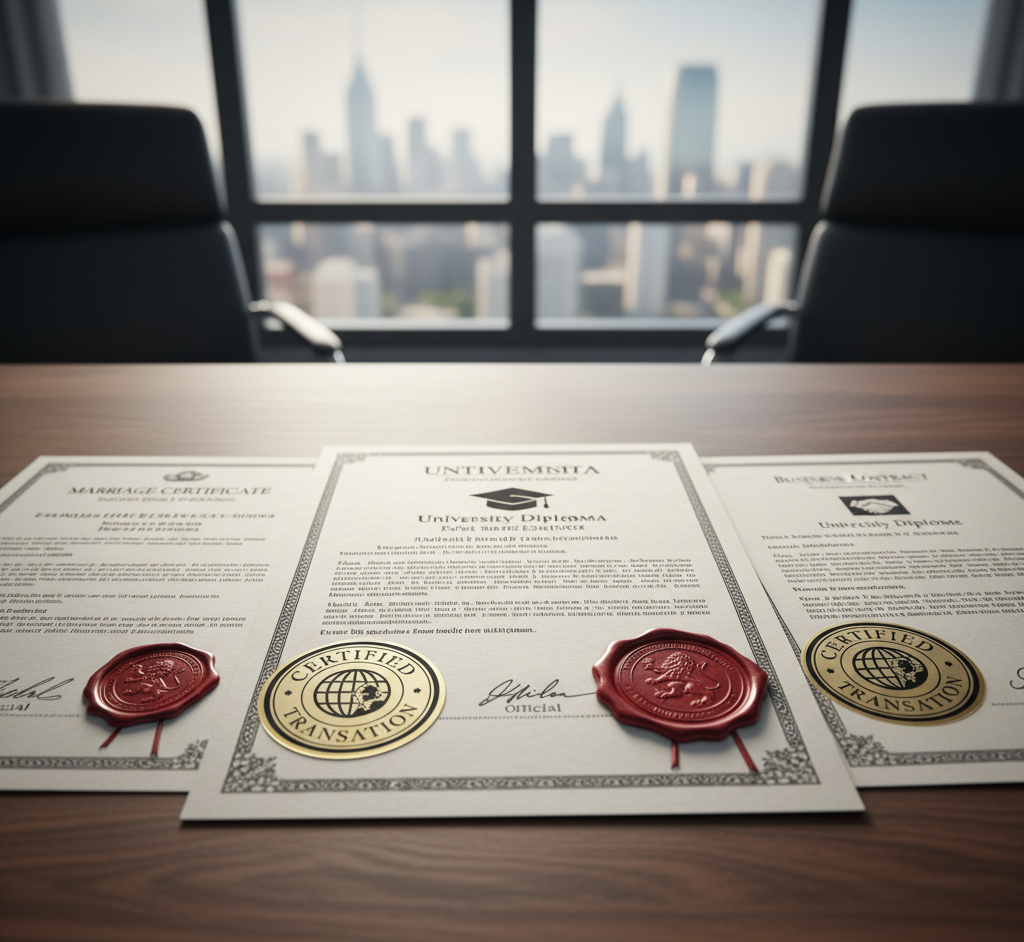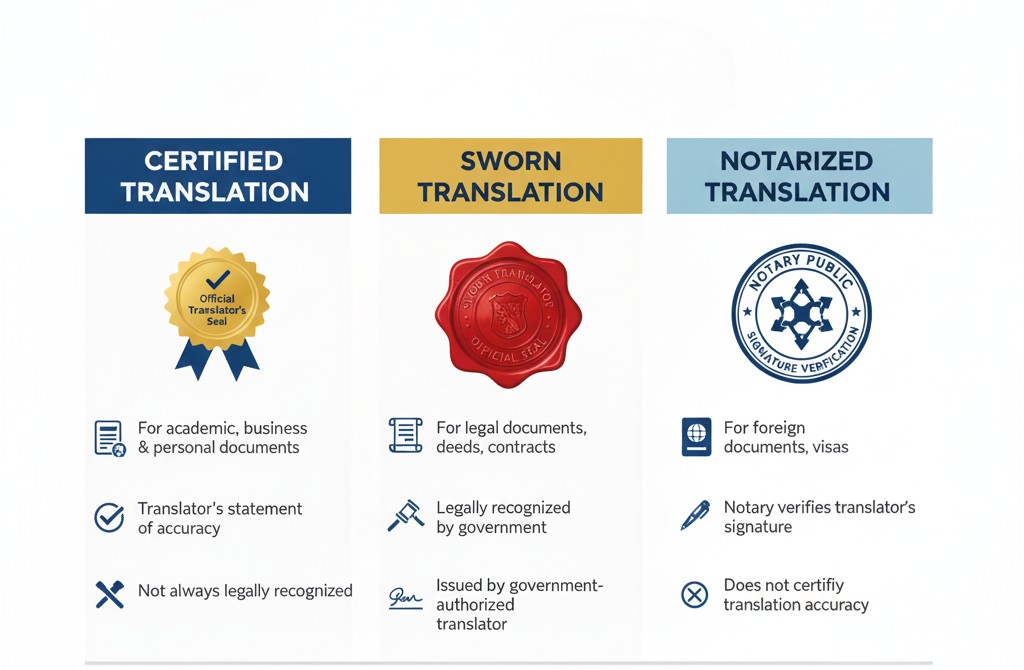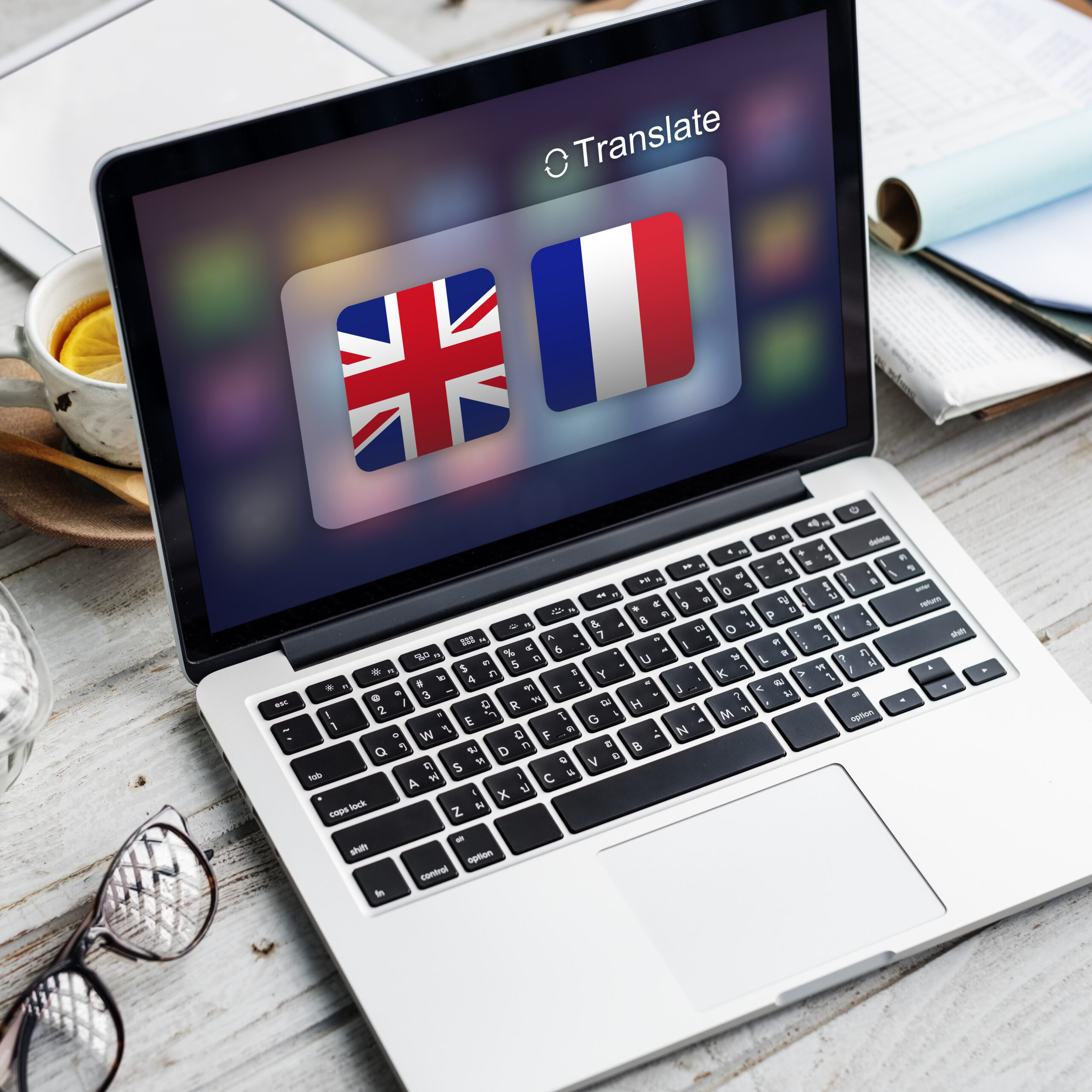Nowadays, certified translation services play a vital role in facilitating accurate communication. In today’s globalization world, the demand for translating official documents is steadily increasing. For example, a business cooperates with partners from other countries. To facilitate communication and prevent misunderstandings and legal issues, contracts and agreements should be translated to ensure clarity and accuracy. In fact, you can easily obtain a rough translation. However, will the translation be recognised as valid by government authorities and legal institutions? Therefore, the translation of official documents, such as legal, business, personal, and other professional documents, must be certified.

This translation process is carried out meticulously and comprehensively without changing the meaning of the original language. Certified translations are more reliable because they provide official verification that the translated document is complete, accurate, and consistent with the original. This is what makes certified translation documents recognised by government authorities, courts, or other institutions that require them.
As proof of official document translation, the translator or provider will sign the certification. This certification guarantees professional qualifications and responsibility for errors in the translation. This prevents you from incurring detrimental errors, such as legal problems or misunderstandings due to unofficial or inaccurate translations.
What Is a Certified Translation?
If you have thought that certified translation is merely a process of translating from one language to another, you are mistaken. Certified translation completed by a professional translator and officially verified (sometimes by a notary) depending on the country’s regulations.. In addition, certified translation is proof that the translator has translated the document accurately and completely in accordance with the original document.
Certified translation will certainly make things easier for you. Imagine if a business wanted to expand to another country and was asked to provide documents translated into the local language. However, the company chose to simply translate the documents without obtaining certification for the translation. In the aftermath, the business might not have the permit to operate. Based on this analogy, certified translation is a must.
A certified translation help prevent losses, misunderstandings, or potential legal violations. This is because this certification is proof that the translator or agency is responsible for any errors in their translation, such as unofficial or inaccurate translations.
So, what should be included in a certification statement? A certified translation must include at least the following four pieces of information. First, the translator’s qualifications. Second, a statement that the translated document is complete and accurate. Next is the identification of the translated document and the language used. Lastly, the translator’s name and signature, as well as the date of translation.
Why Certified Translations Are Important?

Certified translations are important because they ensure the credibility, accuracy and reliability of documents. This is especially true if the documents are used for international business, study, medical or legal purposes. With certified document translation, the relevant authorities or legal institutions will trust your documents. The proof of certified document translation is the credential in the form of an official stamp from a sworn translator or official translator. More than just a stamp, this credential shows that the translator has linguistic expertise. For example, a legal translator is someone who is an expert in the field of law, they understand legal terminology, culture nuances and legal jurisprudence. They also ensure that your documents are accepted without any problems, avoiding misunderstandings due to translation errors. In addition, credentials also ensure that the translated document does not change from its original meaning.
In addition, certified translations make it easier for you to conduct business globally. This is because many countries accept certified document translations for various purposes. For instance, you may wish to continue your education abroad. Of course, you will need the assistance of a sworn translator or official translator to ensure that the translation is certified. Even if you translate very carefully, if there is no certified translation, your documents will be rejected. Hence, certified translations are invaluable.
Who Can Provide Certified Translation Services?
So, where can you get a certified translation? You can obtain certified translation services from individual translators with professional certification, professional translator associations, awarding institutions, professional translation companies, or sworn translators. Professional translation companies usually have professional and experienced translators in their field. These companies can provide certified statements to confirm that the translation of the document is accurate and consistent with the original document.
In addition to translation agencies, you can also work directly with independent professional translators. They are usually members of official professional organisations. Although independent, they also have special certification in the field of translation, making them capable of issuing certified translations.
In addition, sworn translators can also issue such certifications. So, what is the difference between them and professional translators? Sworn translators are translators who are officially registered and authorised by government agencies. Because they are recognised by government agencies, sworn translators can provide sworn translations that are recognised by law. One country that has this nomenclature is Indonesia. With government recognition, sworn translators can issue certified translations.
Alternatively, you may choose to obtain certified translations through an awarding institution. You can ask this institution for help in translating academic documents, such as diplomas or certificates related to academics that are certified by the institution.
Types of Documents That Require Certified Translation
Not all documents require certified translation. For example, you are a marketer at a cosmetics company and are going to promote your products at an overseas exhibition. You only need to translate your promotional materials directly.
It’s different if you are born in Indonesia and want to apply for a family visa to the US. The US Embassy will ask for your birth certificate in English. However, your birth certificate is in Indonesian. Therefore, your birth certificate needs to be translated by a professional translator or a sworn translator and accompanied by a certified translation. This certification will ensure that your birth certificate is recognised by US immigration authorities. Only official documents require certified translations. Besides birth certificates, other personal documents that require certified translations are death certificates and marriage certificates. Both have legal force and are often used for administrative purposes, immigration within and outside the country, or legal matters.
Business documents —such as contracts, financial reports, and company certificates— also often require certified translations. Contracts that have certified translations will have more validity. This is because there are fewer errors and they avoid legal disputes. In addition, financial reports also require this certification to avoid misunderstandings in the presentation of the reports. In addition, there are legal and academic documents that require this certification. Examples of legal documents are deeds, agreements, and powers of attorney. Meanwhile, academic documents include diplomas and transcripts.
The Process of Getting a Certified Translation
Now that you know what a certified translation is, let’s take a closer look at the certified translation process. A certified translation is obtained after an official document has been translated by a professional translator or sworn translator. If you work with a professional translator, you will receive a certification statement after the document has been translated. This certification contains a statement that the translation is complete and accurate, the translator’s identity, and the source and target languages. The translation and certificate are then printed on the letterhead of the translator or official translation agency. The same applies to the contents of a sworn translator’s certification statement. The difference is the presence of an official ‘sworn translator’ stamp.
The process of obtaining a certified translation through a notary typically involves the following steps. After the translator has translated the document, they will submit it to a local notary. The notary will then check and verify the translator. In addition, the notary will check whether the translator fully understands the content of the translated document, without omitting, changing, or adding any information. After the examination and verification process is complete, the notary will certify and declare that the document is true and accurate to the original document. In addition, in the certified translation, the notary declares that they have examined both documents directly. The notary may also provide an affidavit if required by the authorities.
How to Choose the Right Certified Translation Service
You can obtain certified document translations by choosing a trusted provider. This is important to ensure that your documents are accepted by official institutions. In addition, this ensures that the translations are accurate, professional, and legally valid. Here are some steps you need to take.
- Verify Accreditation and Credentials
Make sure that the translation service agency has proof of certification, licensing, or membership.
- Check areas of expertise
Choose an agency that has translators who are experts in their field.
- Review the certification process
You should ask what type of certification you will receive. Will it be a translator’s declaration, a sworn translation, or a notarised translation?
- Consider the turnaround time and reliability
Ask for a turnaround time estimate. Choose a professional service that is realistic without compromising on quality.
- Communication with clients
Choose a provider who will listen to every need and provide the best advice for clients.
By following these five steps, you can ensure quality and reliability. One provider that meets these standards is Speequal. Speequal prioritises speed without compromising high quality and provides solutions for you. For the past 27 years, Speequal has consistently delivered optimal service. With professional translators who are experts in their fields and fluent in various languages, Speequal has assisted clients from diverse backgrounds. From clients in the technology sector to the automotive industry. In the translation process, Speequal utilises CAT technology. This technology enables our translations to be more accurate.
Certified vs. Notarized vs. Sworn Translation

Many people are still confused about the difference between certified translations, notarised translations, and sworn translations. In fact, all three have different legal powers, purposes, and procedures. Certified translations include a statement of accuracy and completeness, while sworn translations are legally recognised because they are performed by a government-authorised translator. Meanwhile, notarised translations involve a notary verifying the translator’s signature. Meanwhile, a notarised translation only certifies the translator’s signature.
Conclusion: Protect Your Business with Accurate Legal Translation Services
Certified translation services will help protect your business through legal clarity in your contracts and agreements with your clients. To ensure the highest level of accuracy and legal validity, it’s crucial to work with a trusted translation agency. At Speequal, we have professional translators who will assist you in translating your official documents into the target language. In addition, we have a large pool of resources for all Asian languages. Accuracy and precision are the standards we apply to every translation process. This is what makes our clients satisfied with the quality of our services. Now it’s your turn to experience our best certified translation services. Contact us today!





